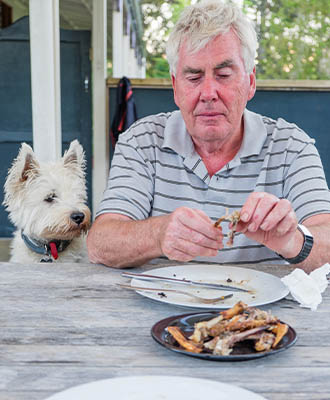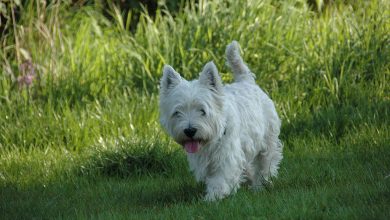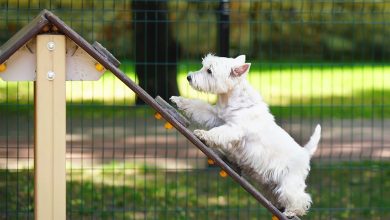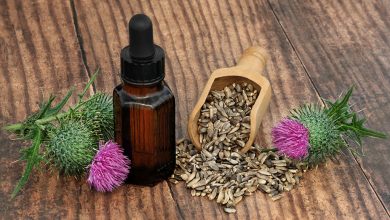Veganism in dogs has become popular thanks to celebrities like F1 racing driver Lewis Hamiliton, and more clients are feeding dogs either a vegan or vegetarian diet. When asked if a vegan diet is the correct choice for our four-legged friends, my heart sinks. Faye Andrews explains.
While us humans may benefit from vegan diets (and I’m not convinced we should solely be vegan or vegetarian) there are many reasons why our furry friends shouldn’t be.
Fact: Adult dogs have 42 teeth whereas puppies only have 28 milk teeth as they do not have molars and only 12 premolars
Firstly, dogs are carnivores, and their teeth reflect their meat-eating ancestry. They have 12 incisors which are fantastic for chewing and nibbling, four canines which are great for ripping meat off a bone, 16 premolars and three molars each side at the bottom and two each side at the top. Molars are sharper than premolars and are useful in chewing hard objects likes bones.
Any animal that is not a carnivore will not have a canine as we know it. Just look at the teeth of a horse, their teeth are flat and blunt, which is great for chewing grass and hay, whereas a dog’s teeth are sharp and jagged, and designed for ripping meat off a bone and grinding the bones themselves. Just look at the big cats in a zoo at feeding time…are they fed kibble? No, they are fed huge chunks of meat, this not only meets their nutritional requirements but also matches their natural dentistry and food instincts. One of my favourite phrases I use when clients and dog owners in the park ask me about food is this: When was the last time you saw a dog in the wild with a camping stove? Meaning they are developed to hunt and kill prey and eat the meat from the bone.

Now here’s the real deal or bigger issue, a dog’s digestive tract has not changed, or at least very little, since they became domesticated 20,000 years ago. With this in mind we should be mindful of their diet, not just because of their digestive tracts but even more so as growing puppies, and not forgetting the nutritional requirements of adult dogs.
Nutrition is an extremely important part of a puppy’s life. The correct diet can help a dog to grow up healthy and strong while avoiding some common musculoskeletal disorders such as elbow/hip dysplasia and osteochondritis dissecans. Nutrition is also important in maintaining a healthy adult dog too.
As puppies, their bones have growth plates at either end of each long bone. Ossification (bone formation) occurs in the centre and at each end of a long bone, the centre of the bone grows towards the growth plates and vice versa. During the growing process the skeletal system is highly susceptible to physical, metabolic and nutritional insults. If the bones do not ossify properly, it leaves the bone weak and vulnerable. Any injury to the growth plate can lead to malformation. It is worth remembering that large and giant breed puppies grow slower. Small breeds reach maturity at 12-18 months whereas large or giant breeds take 18-24 months. There is a period of rapid growth between three-six months. Closures of the growth plates occur between 11 and 12 months.
The skeleton provides a structural frame for muscles, ligaments, and tendons to attach, it also protects organs and stores minerals that are used in numerous functions throughout the body.
Calcium, Phosphorus and Magnesium found in bone are used for coagulation (clotting), nerve conduction and other functions. Feeding poor quality diets that are high in plant based phytates that bind to calcium may result in calcium deficiency leading to pathological fractures and softening of the bones, which can lead to bowing during growth. Although phosphorus deficiency is relatively rare, it may occur when there is an excess of calcium due to supplementing the diet. This results in a widening of the growth plates and therefore elbow/hip dysplasia.
Vitamin D is essential in maintaining calcium and phosphorus homeostasis. It also helps dogs maintain healthy bone formation during and after growth. Vitamin D rich foods include:
- Beef liver
- Fatty fish (sardines, herring, salmon, mackerel)
- Cheese
- Egg yolks
- Red meat
It is therefore important to feed our dogs a diet that is nutritionally balanced and of good quality to maintain skeletal health and aid proper bone growth in younger dogs, but most of all let them be dogs, let them use their primal instincts and rip the meat off the bone that is what their mouths and teeth are designed to do after all.






